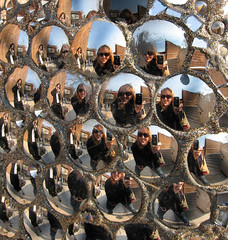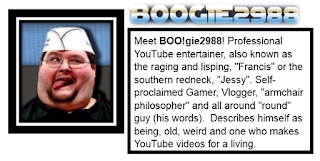To warm up for Monday's
discussion that my group was going to lead on the topic of Identity (until we were saved for one more week...), I decided to
blog about one of the articles and my connections, to help compose my initial thoughts...
The first article I
chose on Identity came from the American Psychological Association and explores
how "Psychologists are learning more about how teen friendships are
changed by social networking and text messaging".
Although there are
infinite ways people can engage and interact online, the importance of friendship
in the formation of a person’s identity remains the same. So what has changed? Maybe technology has just changed the way individuals can be friends with one
another. There are apps and online spaces which often lend themselves to
trolling, detachment and harassment, but have things really changed in terms of
how kind or cruel people can be to one another? Social Media also can lend
itself to opportunities for people who are afraid to reach out to connect, or
empower a person who feels socially isolated the opportunity to present a positive
version of themselves online.
A great deal of online
articles and videos explore the negative impact social media has on the
identity formation of teens as they grow up in the proverbial fishbowl. In
forming identity, friends play a significant role and how we relate to each other
socially. However, what about teens who do not have friends, how does this
impact their identity? As stated by, Novotney, in the article “R U friends 4 real?”, “Being friendless
in high school can have lifelong consequences on a person's cognitive, social
and moral development.” However thanks to social media, “socially anxious
teens who might have been left out, now have a voice” and that one of the
greatest benefits of social media “is its ability to bring meaningful
friendships to people who might otherwise be shunned as outcasts”.
Novotney explores research that reinforces the benefits of the Internet
in providing a space where individuals who might be too shy to interact face to
face, are now able to have meaningful interactions online where they “dared to
say more”. Within the article, there is an acknowledgement of the negative or the darker side of social media, particularly with arguments aligned
with Turkle’s stance. But many examples are also cited where teens are
developing a more positive sense of self because of the perception that they
are able to connect with others “who really get them”.
 |
 by LollyKnit by LollyKnit |
Novotney also cites arguments on how a false projection of one's image can lead other dangers, also presented in Kate
Fagan’s article “Split
Image”.
Reinforcing the fact that sometimes as
individuals carve out that perfect online image, there may be a tendency to
play up the positive and downplay the negative, leading “to the sense that one
is alone in one's own struggles”. Which can be odd, as you would think if you are playing up the positive, you would think others are doing the same.
Although there are
dangers of teens not truly embracing their own authentic sense of self or a self-image
based on personal reflection, and is instead one that is based on the thoughts
of others. Social media can be a space for people to further cultivate their
identity because of connections and relationships formed in the online
platform.
In connection to the RU Friends 4 Real?
article, I wanted to share a video from @Boogie2988 who hosts the YouTube channel aptly named, BOOGIE
2988. After watching the assigned TED Talk by Jon Ronson, I searched to see if there were
other widely advertised social shaming circumstances similar to that of Justine
Sacco story.
In my search, I discovered
a long Twitter conversation between @Boogie2988 and
his Twitter followers. What initially caught my eye, was Boogie’s Tweet, “Fat Shaming by Social Justice Advocates?” Huh? Reading through the Tweets, it
became evident that the gist of the conversation was that Boogie2988 was
receiving support on Social Media after he was accused of being a sexist bigot
online because he was a “Gamer”. Watch the video, where he explains more about
his thoughts on Gamergate, “I
am not a Bigot” or read his Tumbler post, “On
Gamergate and My Role in It” so you can get a sense of what caused the controversy to begin with.
After reading the Twitter conversation, and noting the number of positive comments from followers, I became intrigued. This eventually led me to his autobiographical video, “Draw My Life”.
After reading the Twitter conversation, and noting the number of positive comments from followers, I became intrigued. This eventually led me to his autobiographical video, “Draw My Life”.
I watched the video and cried. Really, I did. It was a heartbreaking story about a very large man, who from childhood had
been beaten down by turbulent upbringing, poor health and poverty – yet one who
found a sense of community through online connections. However in listening to his story, you could
start to see the power of the Internet and Social Media, to connect those who
are isolated or lonely and provide a space for personal connection. In perusing
his YouTube channel, you really get a sense of how these online networks changed his life. At the end of Boogie’s video, he states that he is happier
than he has ever been and he owes his life to his viewers and the difference
they made in his life. Finding his voice online would have been critical in helping him form a positive self-image and identity.
This video may seem like
a strange selection for this assignment, but I wanted to provide an example to
support what was shared in Novotney’s article in how online friends are real
friends and that these spaces are an important place for helping a person
develop that positive self-image.
What strikes me
about all of this was the support from Boogie’s followers. What provoked the
attack on Boogie sounded very much like the unthinking Social Media attacks apparent
in Jon Ronson’s TEDTalk, or what Shaun Horsman shares as the ‘mob mentality’ that condones hostile behavior. But what gives me
hope is that with the story of Boogie, there were those willing to go online to
show support. Boogie would be a celebrity to some in the Gaming community, but
he was an easy target. Maybe there is hope for all users - adults or kids - in becoming better people online.
References:
Reference: Novotney, A.
(2012). RU Friends 4 Real?. Monitor on Psychology, 62-65. Retrieved from http://www.apa.org/monitor/2012/02/friends.aspx




Had to come read this because I have had friends online for years. I got really frustrated 15 years ago (oh my gosh, it has been over 15 years!!!) when people would say online friendships aren't real. Well, I spent a summer living in southern Alabama with my then fiance and his family (who I met online). I got to see a whole bunch of friends there who I'd been talking to for a number of years. One of them I'm still friends with today although we don't talk super often. I worked a job entirely online, never met any of my coworkers or my boss, but I still am so glad I met wonderful people. And I know if I showed up and got in touch with some of them, said I was in their city, we would go for coffee at the very least. Online can be just as meaningful as offline, depending on how you approach it. So I think it's an important thing to understand for those who haven't had that experience.
ReplyDeleteThat @Boogie2988 video was amazing. So glad you shared that!
Gamergate, on the other hand, I have some serious feelings about. Maybe I should blog about it. Actually, I think I need to. I appreciate his stance on being a moderate and not wanting it to get nasty on either side. I disagree with him that there is any redeeming Gamergate as a hashtag, however, because of the extreme and vocal minority who used it for very, VERY awful things. There are no leaders to point to to say this is our message. (which is unlike Islam, when there are leaders to point to to explain splits, share messages that are not about murder, likewise Christianity there are leaders who share that their religion is not about hate even though others have said it is). Anyway. Off to my own blog! Thanks for inspiring me!